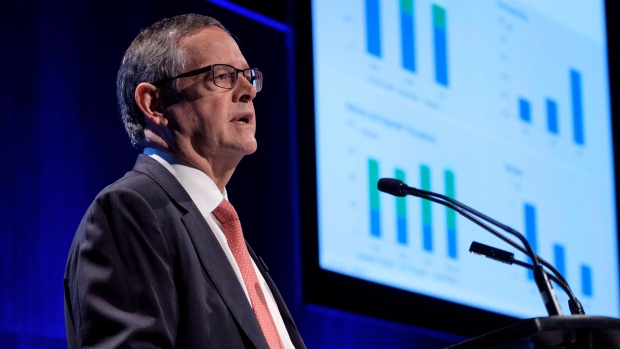Oct 25, 2018
Husky CEO downplays chances of MEG Energy bidding war
, Bloomberg News

Husky Energy Inc. (HSE.TO) Chief Executive Officer Rob Peabody is downplaying the possibility that a rival suitor will step in to challenge its $3 billion bid for MEG Energy Corp (MEG.TO).
“We’re pretty unique in the way we can add value through the transaction,” Peabody said on Husky’s third-quarter earnings conference call. “I can’t comment on others’ intentions, but I think most of the peer companies that I’ve heard talked about are kind of just focused on improving operations and have done some previous A&D that they’re still in the process of working their way through.”
Peabody also said he’s not optimistic that Western Canada Select crude prices will be helped much by the end of an active U.S. refinery maintenance season that reduced capacity to process heavy oil in recent weeks. The wider WCS discounts to West Texas Intermediate will continue through 2020 until more pipelines come into operation and have steered the company away from aggressively increasing its Canadian production, he said.
The current turmoil in the Canadian oil industry, in which pipeline bottlenecks have sent differentials to the widest on record, are “the slowest train crash I’ve ever seen,” he said. “From about 10 years out you could see it coming, and yet we walked right into it as a nation.”




